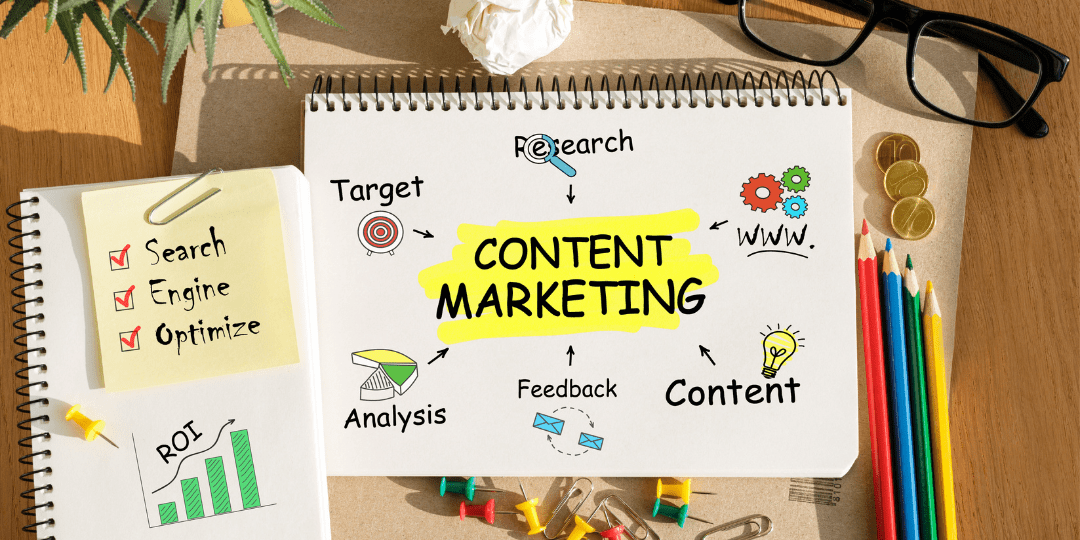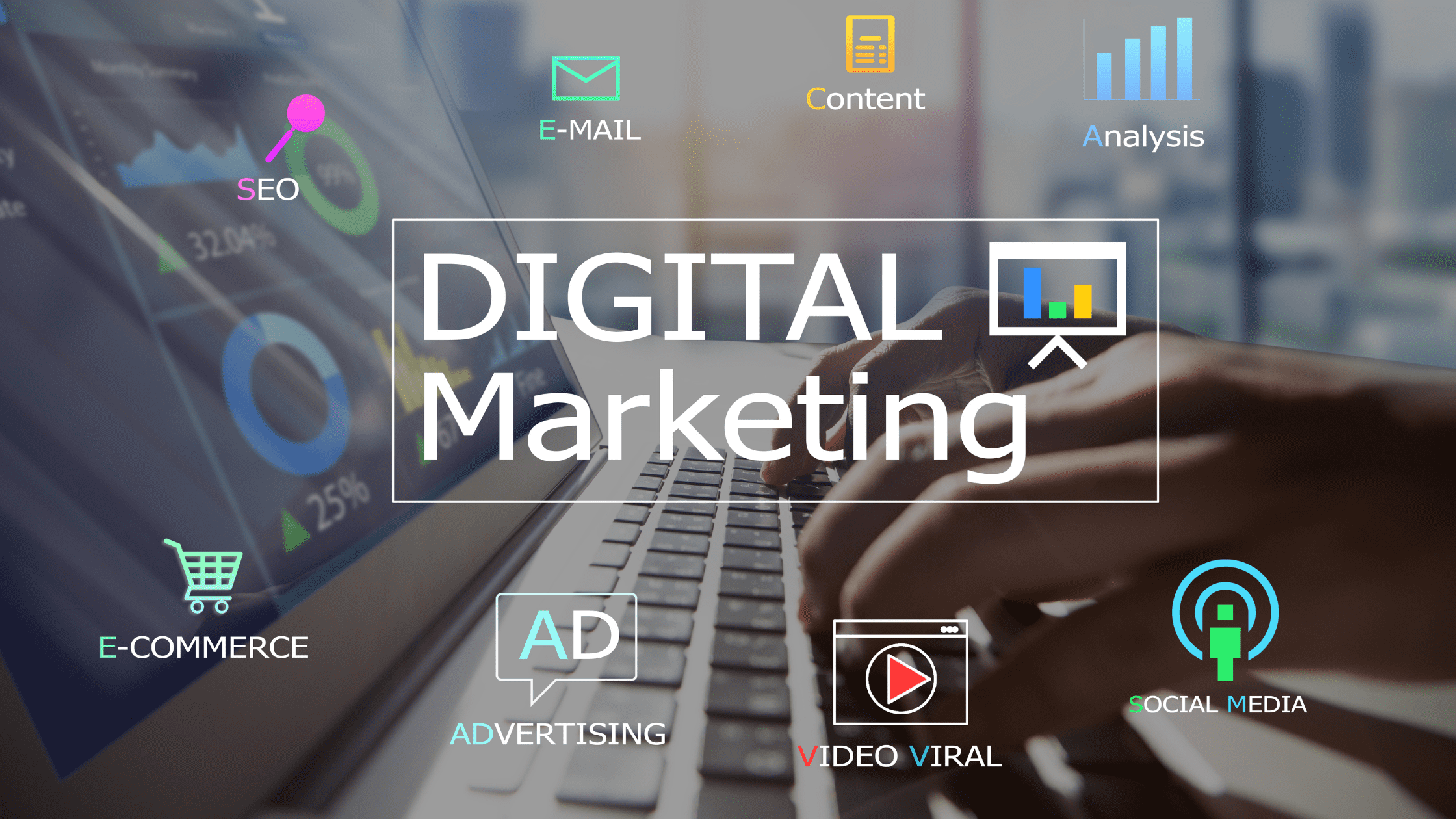In today’s digital world, marketers have more strategies and channels than ever before to reach their target audience. Two of the most effective approaches are content marketing and digital marketing. While these strategies are related, they have distinct differences and advantages. The key to success is understanding how content marketing vs. digital marketing works as part of an integrated marketing strategy.
In this blog, we’ll compare content marketing and digital marketing, looking at their goals, tactics, benefits, and how they work together to attract, engage, and convert customers.
What Is Content Marketing?
Content marketing is a strategic approach focused on creating and distributing valuable, relevant, consistent content to attract and retain a clearly defined audience. The goal is to drive profitable customer action by building trust and relationships through content.
Unlike traditional advertising, content marketing takes an indirect approach, where brands aim to avoid overt sales pitches and instead provide genuinely useful and engaging content to prospects and customers. By educating and engaging people, content marketing builds awareness, credibility, and loyalty over time.
Types of Content Marketing
Many forms of content can be utilized for content marketing:
- Blog articles – Regular blogging provides ongoing valuable content. Articles can range from quick tips to in-depth guides.
- Social media posts – Engaging social content like videos and images allows brands to tell a story.
- Videos – YouTube, TikTok, Instagram Reels, and other platforms allow video content. Formats like tutorials and product demos attract viewers.
- Podcasts – Audio content like podcast episodes or online radio shows build brand personality.
- Infographics – Visual infographics simplify complex information for easy consumption.
- eBooks – In-depth guides and reports in a downloadable document format.
- Case studies – Success stories and customer testimonials add social proof.
- How-to guides – Step-by-step tutorials for using products or services.
- Research reports – Data-driven reports build thought leadership.
- Quizzes – Interactive quizzes engage users and gather data.
- Webinars – Live or recorded web events with expert presentations.
The focus is developing content for owned media platforms like a company website, blog, and social channels where brands have complete control over the user experience. But content can also be amplified through earned media like backlinks and press coverage, as well as paid channels like sponsorships and social media advertising. An integrated distribution strategy is critical.
Advantages of Content Marketing
- Builds brand authority and trust by positioning your company as an industry expert. Quality educational content demonstrates knowledge.
- Improves search engine optimization (SEO) by optimizing content with relevant keywords. This can boost website traffic and rankings.
- Generates and nurtures leads by attracting visitors with helpful content that moves them down the funnel. Visitors convert to leads through gated content offers.
- Converts prospects further down the funnel by providing content that answers questions at each stage, from awareness to consideration to decision.
- Engages and retains existing customers by delivering value beyond the product/service alone. Content keeps customers interested in the brand.
- Provides valuable assets for digital campaigns like social media ads, email nurturing, and paid ads. Relevant content improves targeting and performance.
Disadvantages of Content Marketing
- Resource-intensive to create quality content. Requires an investment in content research, creation, optimization, promotion, and maintenance.
- An indirect sales process means slower conversions compared to direct response digital marketing. Content marketing aims to attract, not sell.
- It isn’t easy to directly measure content return on investment. Tracking web traffic and conversions from content can be challenging compared to digital ads.
- Inconsistent and long-term results. It takes time to build authority and see dividends from content marketing efforts.
Overall, content marketing remains one of the most effective strategies for establishing brand authority and credibility with target audiences in a subtle, helpful way. The indirect approach fosters trust and relationships better than hard selling.
What Is Digital Marketing?
Digital marketing involves promoting and selling products or services using digital distribution channels and tactics. The main goal is to acquire new customers and drive sales through electronic media. Unlike traditional marketing focused on print, TV, and radio, digital marketing leverages the internet and mobile technology to target a broader, more specialized audience in a measurable way.
Types of Digital Marketing
Search Engine Optimization (SEO)
- Optimizing website content, metadata, tags, page speed, etc., to rank higher in organic search results
- Requires keyword research, content creation, link building, and site optimization
- Allows brands to reach people during the initial research phase
Pay-Per-Click (PPC) Advertising
- Purchasing text, image, and video ads on search engines like Google and Bing
- Ads target users based on keywords; advertisers pay per click
- Powerful for driving website traffic and conversions
Social Media Marketing
- Organic and paid advertising on platforms like Facebook, Instagram, Twitter, LinkedIn
- Allows highly targeted promotions to reach specific audiences
- Leverages ads, organic posting, influencer partnerships
Email Marketing
- Building an email list to nurture with newsletters, promotions, surveys
- Segmenting subscribers based on demographics, interests, and engagement
- Automation allows personalized, timed email campaigns
Affiliate Marketing
- Partnering with influencers and niche websites to promote products
- Affiliates earn a commission for sales driven to your site
- Provides access to established web properties and engaged followers
Online PR
- Building brand visibility and credibility through digital publications
- Pitching reporters to earn backlinks and press mentions
- Cultivating relationships with industry journalists and bloggers
Advantages of Digital Marketing
- Measurable results in real-time through analytics and tracking pixels. Provides data on clicks, impressions, conversions, and ROI.
- Highly targeted based on user data like demographics, location, interests, and intent signals. Allows personalized communication.
- Drives direct traffic and conversions on your website through strategies like SEO and PPC.
- Cost-effective compared to traditional print, TV, and radio advertising due to wider reach and precision targeting.
- Provides interactive experience through technology like personalized websites, apps, and augmented reality.
Disadvantages of Digital Marketing
- Platform algorithms and regulations can limit the organic reach and access to data. Requires adapting to changes.
- Fragmented channels and audiences make the integrated strategy more complex and time-consuming.
- Constant platform and feature changes require flexibility, resources, and continuous testing.
- Online competitors also utilize digital marketing, creating more noise.
- Ad blockers impact the ability to reach audiences.
While digital marketing can provide unmatched targeting and optimization capabilities for brands, it does require overcoming some challenges around regulation, saturation, and constant change.
Overall, digital marketing gives brands direct access to consumers and real-time granular performance tracking. It’s a go-to avenue for driving conversions through flexible and personalized campaigns when applied strategically. However, integration with content marketing strategies can be beneficial.
Content Marketing vs. Digital Marketing
Now that we’ve defined content marketing and digital marketing individually, how do they compare? While there is some overlap, there are distinct differences between the two strategies:
- Content marketing focuses on attracting and retaining customers through valuable content. The goal is to build relationships over time by being helpful, not promotional.
- Digital marketing primarily promotes and sells products or services through paid and earned digital channels. The focus is on conversions and driving website traffic.
- Content marketing generally takes an indirect, subtle approach to generating revenue. Digital marketing uses more direct calls to action and tracks sales.
- Content marketing builds brand awareness and loyalty. Digital marketing converts that awareness into measurable actions and sales.
- Content marketing develops owned media assets. Digital marketing amplifies reach through paid and earned channels.
Looking at it another way:
- Content marketing provides the bait through valuable information and entertainment.
- Digital marketing gets prospects hooked and reels them in with targeted campaigns.
So, content and digital marketing have distinct goals and strategies but work hand-in-hand as part of a complete marketing plan.
How Digital Marketing & Content Marketing Work Together
When aligned effectively, content marketing and digital marketing complement each other perfectly. Some fundamental ways they collaborate include:
- Content marketing provides a steady stream of assets like articles, videos, and podcasts that address target buyer needs and interests. These owned media resources attract and engage prospects.
- Digital marketing then utilizes this content for distribution through paid and earned channels. Social ads, email campaigns, and influencer partnerships push the content to segmented audiences and new networks.
- This extension of reach through digital marketing generates more website traffic, lead generation, and conversions.
- Metrics from digital campaigns also provide insights into what content resonates best with different audiences. This allows brands to optimize content production.
- Content amplifies digital marketing efforts by providing helpful and exciting resources to prospects throughout the buyer’s journey, from awareness to consideration and conversion.
- Digital marketing shortens and streamlines the customer journey by creating personalized experiences and targeted touchpoints that convert interest into sales.
With strategic coordination, brands can gain exponential value from their content and digital marketing strategies. The integrated approach provides a full-funnel plan to attract, engage, convert, and delight customers.
Content Marketing vs. Digital Marketing Strategies
To maximize results, brands should develop an integrated strategy that aligns content marketing and digital marketing goals, resources, and metrics. Here are some best practices:
- Define your target buyer personas and map out their customer journey from first interaction to final purchase. Identify critical gaps and opportunities to engage.
- Audit your existing brand assets, including website content, blog posts, visual content, and social media presence. Spot any gaps or outdated material.
- Develop a content calendar to create topics and formats that match audience needs and digital campaigns. Consider seasonality and current events.
- Distribute and amplify content through email marketing, social promotions, PPC campaigns, affiliate partnerships, and other digital tactics.
- Set up tracking procedures to collect data and analyze performance across tactics. Look at engagement rates, conversions, lead quality, and ROI.
- Continuously test and optimize your strategies based on insights. Refine content and assets based on top-performing platforms and formats.
With an agile approach, you can ensure your content marketing and digital strategies are calibrated for relevance and impact. Appoint team members to oversee both areas for integration.
Conclusion
Although content marketing vs. digital marketing have distinct purposes and tactics, they are most effective when developed hand-in-hand. While content marketing focuses on attraction and relationships, digital marketing facilitates conversions and sales.
An integrated strategy allows brands to nurture prospects with helpful content at the awareness stage and then accelerate them down the funnel with targeted digital campaigns. Coordinated properly, the strategy multiplies results through expanded reach, conversions, and engagement.






